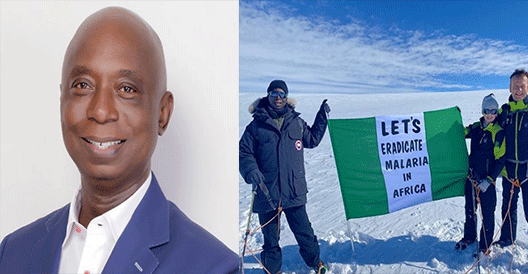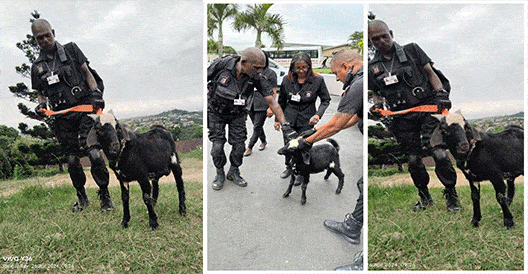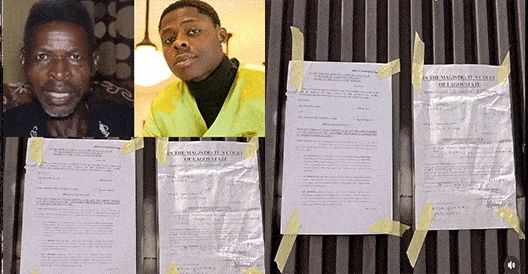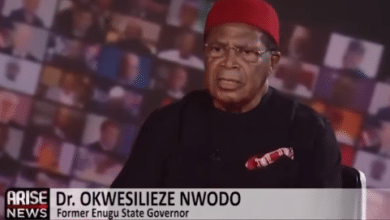
A few weeks ago, Prince Ned Nwoko took his campaign to Eradicate Malaria to Antarctica ‘the coldest continent in the world where the average temperature was between -25 and -65 degrees” making him the first Black African to visit the South Pole.
Narrating his experience on the trip, Ned Nwoko said, ‘It took two separate flights totaling 12hours using a specially converted (to land on ice) basler 1943 aircraft from Wolf fang to South Pole.
There was Extreme cold, 24hrs daylight (no darkness), no airport, no immigration or custom, no land except glaciers and few rocks, no shops, no hotels, slept in body bags inside tents, Very windy, less than 5000 people and they are all research scientists from America, Uk, Germany, india, Russia, South Africa etc. only 12 countries have had their flags hoisted at the South Pole, Nigeria is now the 13th country but Nigeria must take effective steps to ratify the 1961 treaty.

80% of the world’s fresh water is contained in the glaciers of Antarctica. It was a terrible experience for me but it was worth it. i showered twice in the week, ate frozen food brought from cape town, I wore 7layers of special thermal cloths, 2 hand gloves, heavy booths. human waste (solid and liquid) are collected and sent back to Cape Town nothing is left behind including normal refuse.
I am happy that I met my objectives for the trip which is to create awareness for the eradication of malaria in Africa, met some scientists for the research for vaccine and the company that has done fumigation in Malaysia, and Florida. It is now time for work.
Before his trip to Antarctica, Ned Nwoko through his foundation ‘Prince Ned Nwoko Foundation’ has been aggressively campaigning for a Malaria free continent and has over the last couple of months demonstrated his resolve and commitment to ending this scourge.
The Scary Statistics.
The six highest burden countries in the WHO African region (in order of estimated number of cases) are: Nigeria, Democratic Republic of Congo, United Republic of Tanzania, Uganda, Mozambique and Cote d’Ivoire.

These six countries account for an estimated 103 million (or 47%) of malaria cases globally. According to the World malaria report released by WHO in November 2018, there were 219 million cases of malaria in 2017, up from 217 million cases in 2016. Children under five years of age are the most vulnerable group affected by malaria. In 2017, they accounted for 61% of all known malaria deaths worldwide.
For centuries, mosquito has been a major scourge to man especially in Africa due to the disease spread by this vector. Mosquito is the vector that causes several ailments including Yellow fever, Dengue fever, Filariasis and lately Zika. However, the most common disease spread by mosquito is Malaria fever.
How Ned Nwoko Plans To Eradicate Malaria In Africa

1. Vaccine Development: The long-term plan in delivering this project is supporting the existing efforts of vaccine development by funding a research for the anti-malaria vaccine. The foundation plans to establish an Academic Research Grant for anti-malaria Vaccine development.
The grant shall be available to be accessed by scientific scholars across Africa. The research will take place at some leading universities in Africa. There shall be a proper selection process by a body of judges for the most qualified scholars and researchers to access the grants.
2. Integrated Vector Management: The Short-term delivery plan shall be a National Mobilization for Environmental Clean Up and Fumigation of Nigeria and other African countries. There will be Indoor Residual Spraying (IRS) and Larval Source Management (LSM).
Prince Ned Nwoko is advocating the declaration of a National Day of Fumigation in Nigeria and across Africa. In achieving this, community members will be made stakeholders of their environments during the campaign. Townhall meetings will be held to appoint sanitation officers and ambassadors at the grassroot level.
3. Advocacy And Mobilisation: Galvanizing and mobilizing international, governmental, non-governmental and Private sector participation through effective communication, Advocacy and partnerships.
This will be achieved through:
* Advocacy and regular health services.
*Accelerating partnership in malaria control through advocacy.
*Stimulating a social movement that will create awareness and sense of responsibility.
* Updating stakeholders on achievements 6 of the project so as to keep them focused on the project target.




